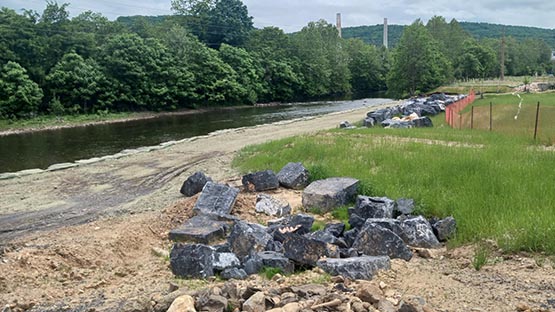
The energy for expansion is coming from the House of Delegates. Invigorated by the results of the 2017 election, the increased Democratic minority is absolutely committed to expanding Medicaid. The reduced Republican majority seems resigned to it and apparently wants to put the issue behind them, so it will not control the flow of another election cycle. In the Senate, which was last on the ballot in 2015, the discussion does not appear to be that dramatic. But behind the scenes, the pressure is building.
My prediction is that when the budgets are released by the money committees on Sunday, Medicaid expansion may not be overtly mentioned, at least not in the Senate budget. But the actions on Sunday are just the first move in the chess game. During the last few weeks of this session, the House and Senate appropriators will be locked in discussions and horse trading to finalize a budget. In the background is the Governor, who will have about five weeks after the session ends to continue to negotiate the terms of the budget. Medicaid expansion may indeed be part of the equation by the reconvened session in April.
If that can happen, many Republican legislators and candidates will be happy to have the issue settled and behind them. But many more Virginians, up to 400,000, will have access to health care. The end result will be a healthier workforce and population.
Multiple other big issues came to a head this week. The House considered House Bill 1558, the companion bill to Senate Bill 966 that passed the Senate last Friday. The House, due to the leadership of Delegate David Toscano of Charlottesville, added an amendment to prevent the “double-dipping” effect of the legislation. The Senate defeated a similar amendment to SB 966 last week. While Dominion has objected to the term “double-dipping,” there can be little doubt of the effect of the language in the bill. The legislation permits Dominion to keep perhaps as much as $200 million a year in excess profits, money paid by their ratepayers as a result of 2015 legislation, to reinvest into infrastructure improvements. But, they would build that investment into their new base rates. Thus the “double-dipping” phrase aptly applies. The Dominion legislation passed the House with Delegate Toscano’s amendment. Like every other piece of legislation, there is a lot of time for continued negotiation and work between now and the end of session.
In response to the near collapse of the federal health insurance marketplace in the Charlottesville area, I introduced legislation to bring more insurers into the market. My bill was incorporated into Senator Siobhan Dunnavant’s Senate Bill 844. On the floor, Sen. Dunnavant offered a floor substitute stripping out the provisions of my bill leaving only language offered by Sen. Bryce Reeves to provide for 364 day short-term policies. These policies do not have to comply with state mandated benefit laws. They are less than ideal, but for those without any options, they might be better than nothing. I remain frustrated that the assaults on the Affordable Care Act since its passage are what led to this market failure. All of this could have been avoided by making the ACA work instead of trying to secure political victories. The bill passed the Senate and is now headed to the House of Delegates.
Transportation policy, specifically how to pay for maintenance and improvements, remains a challenge. In the 1920s, the Virginia Department of Highways was created and funded by the first gas tax proposed by then Governor Harry Byrd. The system was modernized and transformed in any number of ways, most notably by the 1986 legislation championed by Governor Jerry Baliles. His seemingly long-range plan provided generations of funding to modernize and expand our transportation system. The plan did not last. Through poor decisions made in the mid-1990s, the funding sources proved inadequate. By 2013, we were in desperate straits. No longer able to match the federal funds that flowed to Virginia and nearly out of secondary road funding, we had to do something. The 2013 legislation was significant in that it added money to the Transportation Trust Fund for the first time since 1986. The legislation provided substantial new money to Northern Virginia and Hampton Roads, primarily because those areas were allowed to raise their own revenues. For the rest of us, it simply added maintenance money. While much needed, the bill Balkanized our system and set us down a path with long-term detrimental consequence. The beauty in the original 1920s plan was that it showed we were all in it together. We were a Commonwealth. When we essentially cut the populated areas out of the system in 2013, we severely impeded our ability to raise money for projects in other parts of Virginia.
The problem has become most acutely identified by those in the Interstate-81 corridor. I-81 carries about 42 percent of the state’s truck traffic. Anyone who spends much time on that road knows what I am talking about. At least three bills were introduced this year to address safety and traffic concerns in this corridor. Sen. Mark Obenshain introduced a bill directing the Commonwealth Transportation Board to study the possibility of tolling trucks on the highway. This is not a new concept. It was studied at the federal level back in the late 1990s. Frankly, it will not produce enough money to address fully the problems on I-81. It may also impede commerce and drive trucks off of I-81 and onto major secondary roads, like U.S. Route 11 and 29. I voted for the legislation because this is a complicated subject that needs a multi-faceted approach. I am willing to take a look at any possibilities to solve our transportation funding issues. But I hope in looking at trucks-only tolling, the CTB considers all of the ramifications of such an approach.
Another bill carried in the House of Delegates by Delegate Israel O’Quinn calls for the creation of a joint subcommittee to study the feasibility of adding lanes to I-81. I have not read that legislation, which is awaiting action in the Senate Rules Committee. Candidly, this has been talked about for years. We already have an idea what it will cost and have discussed the ramifications of taking more land in the Shenandoah Valley for an interstate highway. I guess it will not hurt to think about the issue some more.
Sen. Emmett Hanger of Augusta County introduced legislation that passed the Senate on Tuesday to create the Western Virginia Transportation Commission among the localities most affected by I-81. The bill would impose a 2.1 percent gas tax increase, about 5 or 6 cents a gallon, to fund improvements. I doubt the increase would raise enough money to make the sort of improvements people are talking about, and I am not confident the bill will pass out of the House of Delegates. Nonetheless, if we are serious about making improvements, this is an honest approach to solve the problem. We cannot improve our transportation infrastructure and address the traffic and safety concerns on I-81 without money, and we have to be willing to consider how we are going to raise it. In 2013, we determined that Northern Virginia and Hampton Roads were on their own and provided them the path to raise their own money. A corollary to that, unfortunately, is that we are own as well. In my view, that is bad policy.
The resolution I introduced in support of four-laning Route 220 failed last week. The Senate Rules Committee met for about two hours last Friday to dispose of over 80 bills and resolutions. While I had little time to make my pitch and the Committee understands the importance of this issue to the Alleghany Highlands, the Senate simply does not pass resolutions expressing the sense of the General Assembly anymore. I will continue to look for ways to advance this issue.
For the first time since 1945, the beginning of Lent coincided with Valentine’s Day. I trust that you and your families have a healthy, productive season. Thank you for the high honor you have bestowed upon me to serve you in the Senate of Virginia. If I can answer questions or provide assistance, please contact me at (804) 698-7525 or by email at [email protected].










